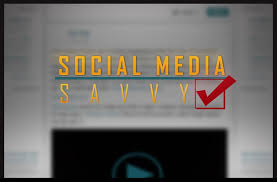


Today’s Must Read: Your Organization’s Social Media Policies
Another day, another racist, thoughtless, cruel social media post. And another former employee on the unemployment line.
As my colleague Howard Fencl writes in this edition of the Hennes Communications newsletter and on our online blog, we’ve been subject to an ever-growing litany of people posting offensive tweets, Facebook comments and Instagram messages.
Followed in most cases by the organization firing the offender and scrambling to salvage its reputation. What else should the leaders of companies, nonprofits, law firms, schools and every other organization do? Review your social media policies and talk to your employees about them. Now.
“This shouldn’t be reactive. It should be proactive,” says John P. Bacevice of Cleveland-based Bacevice Law LLC and former Assistant Director of Law for the City of Cleveland. “It should be part of employee orientation and there should be regular reminders.”
Employers have a clear interest in how employees conduct themselves, including away from the workplace. “It used to be how you acted in a bar or out in public,” Bacevice says. “Now, it’s also social media.”
A recent Forbes story on social media policies put it this way: “The expanded reach of social platforms and their integration into our daily lives places organizations at a higher risk for damage to the brand and its reputation. And the lines between personal opinions and those expressed on behalf of an organization can be unclear. Employees may include their employer’s name in their bios, sometimes overtly … and sometimes more subtly, as many Facebook users do when completing the platform’s standard “About” template. Regardless, the affiliation presents a unique challenge for organizations.”
From a legal standpoint, private business does not share the same First Amendment concerns as public entities. Put most simply, the First Amendment protects all of us from the government punishing or censoring speech. But the First Amendment doesn’t apply to private organizations.
That said, the National Labor Relations Act must be taken into account. The NLRA guarantees all employees the right to collectively bargain and organize and that includes sharing information about pay, work conditions and benefits. As the Forbes article stipulates: “employers in the U.S.—even those that are not unionized—cannot issue any policy that would infringe on the ability of employees to engage concerted activities protected by the NLRA.”
But that does not include, Forbes notes, “content that is company-affiliated concerning opinions on social causes, political views, or is extreme, violent, or sexually explicit, drug-related, discriminatory, or is inflammatory or unlawful.”
And that should all be covered in a social media policy. And if your company doesn’t have a social media policy, move that action item to the top of your agenda, get professional help and get it done. Now.
Bacevice suggests that regular reminders to employees on social media policies should be explicit in showing examples of missteps and social media posts that are out of bounds. That’s smart both operationally and legally.
“Educate,” Bacevice says. “It shows the employer is taking action.”
In other words, educate now. And you may avoid firing and apologizing later.